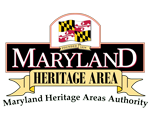Elvare Lucreatia Smith Gaskin
46 years in education – when St. Mary’s County schools were separate and unequal
March 9, 1919 – December 10, 1997

“She had a real passion for children and education. It was nothing for us to have kids around the house all the time. She’d be standing there preaching ‘you’ve got to get an education.’ She was very involved in the community. After she retired, she was a pupil personnel worker. And she would go to peoples’ homes and get the kids and say, ‘you have to go to school—you have to go to school.’ It was just something that she was born to do.” John (Alonzo) Gaskin (son)
Elvare Lucreatia Smith Gaskin started school at age five in a one-room “colored” school in Scotland, St. Mary’s County, Maryland during segregation. Her grandmother boarded schoolteachers, and they would sneak Elvare into the classroom. She loved learning and loved teaching. With the assistance of her grandfather, she attended Cardinal Gibbons Institute. When it closed, she transferred to Pomonkey High School in Charles County where she boarded with family friends. After high school. she earned a teaching degree and later her master’s degree from Morgan State. Her first teaching job was in the one-room Gravelly Knolls School in Oraville, Maryland, where she taught African American students in grades one through seven. The one-room schools would require a single teacher to teach all seven grades with sometimes as many as forty children in one room.
Over 46 years, Elvare Gaskin went on to teach at other one and two room Black schools in St. Mary’s County, during the consolidation of schools, and, finally, the transition to an integrated system. She ended her forty-six-year career as principal of Green Holly Elementary School, the first fully state-funded school for special education children in the state of Maryland.
“To see those children who were limited be able to grasp enough information, to be able to work on their own, to get a job, and to work. And, also what’s gratifying is that several of my students taught in the same building with me while I was still teaching there. They went on to Bowie (State College), graduated and came back to the county and taught. I was just so happy that I had had a part in their lives.” Elvare Gaskin
As a Black teacher in a segregated system, Ms. Gaskin suffered discrimination in a variety of ways. The quote below illustrates one those ways:
“We used to get our checks once a month. When I got married, I got my check three days earlier than the others (Black teachers). My maiden name was Smith. Gaskin just had to be a White person. So they sent my check all year long with the White teachers. They didn’t know any better. Then at the end of the year when I went up (to Leonardtown) to carry my register – we had these darn registers – and she said, “You’re Mrs. Gaskin??” I said, “I am.” I didn’t get another check early.” Elvare Lucreatia Smith Gaskin.
“My mother practiced a different kind of activism. She did not spend her time protesting instead, she had a ‘get things done personality.’” Alonzo Gaskin. For example. Ms. Gaskin was instrumental in encouraging and supporting Elizabeth Barber Walker to apply for admissions to St. Mary’s College of Maryland. Ms. Walker was the first African American admitted to the school. Her admission and later graduation led to the desegregation of the college in 1962.

Ms. Gaskin with her grandmother.
Additional Resources
UNIFIED COMMITTEE FOR AFRO-AMERICAN CONTRIBUTIONS, Oral History Project, ELVARE GASKIN, Interviewer: Merideth Taylor, Recorded: January 28, 1997. Oral Histories (ucaconline.org)
UCAC online, Experiences – Education (ucaconline.org)
Find a Grave Memorial, Elvare Lucreatia Smith Gaskin (1919-1997) – Find a Grave Memorial
Gaskin, John William Alonzo, Slackwater Archives, Interviewed by Michael Kline and others, Southern Maryland Folklife Project, St. Mary’s College of Maryland, February 11, 2002. He talks about his mother as a teacher and principal, race relations, and other topics
